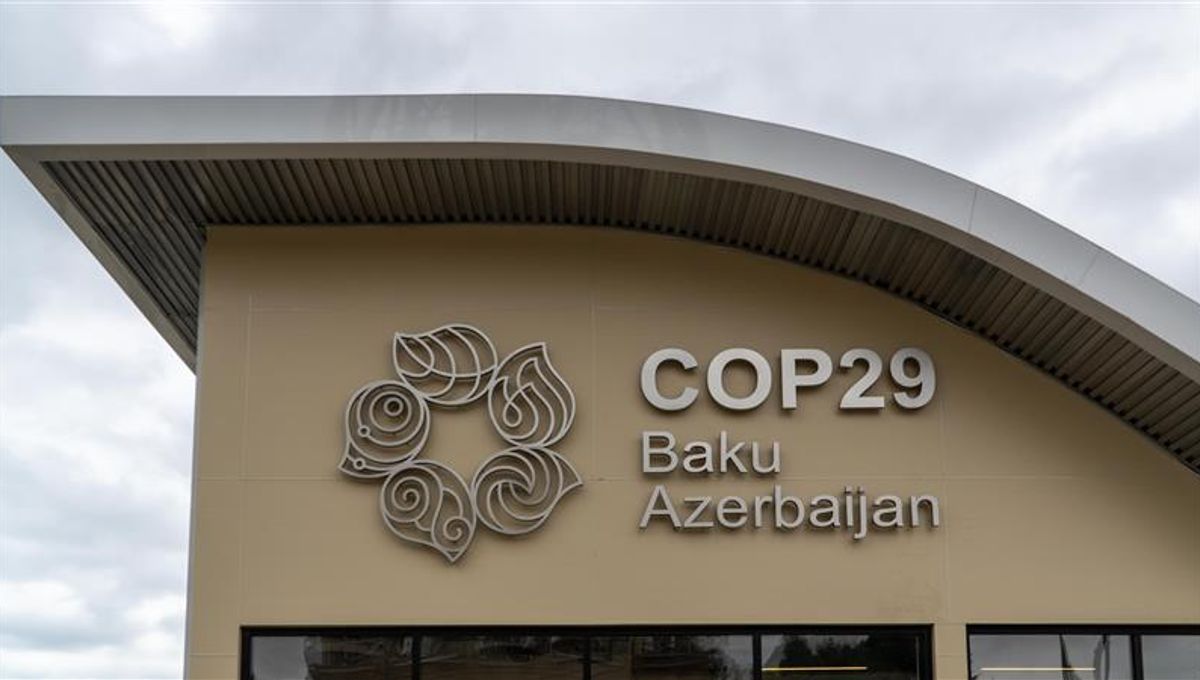
The Chief Executive Officer of COP29, Elnur Soltanov, has appeared to discuss investment opportunities in Azerbaijan’s oil and gas operations with a man posing as an investor in a secretly recorded video.
The filming, reported by the BBC, sinks the already low expectations many people had for meaningful actions against the climate crisis to be decided at the international climate conference.
Soltanov is the deputy energy minister of Azerbaijan, whose economy is strongly dependent on the export of fossil fuels. The country is the host of this year’s United Nations Climate Change Conference, which is also known as the Conference of the Parties of the UNFCCC – more simply COP29. It will start on November 11 and will conclude on November 22 in Baku, the capital of Azerbaijan.
The footage and documents detailing the alleged behavior were recorded and shared by the human rights organization Global Witness. When Soltanov believed he was talking to a real fossil fuel investment firm, comments were made related to the intention of Azerbaijan to expand their oil and gas operation on the State Oil Company of Azerbaijan (SOCAR). Soltanov is on the board of SOCAR.
“He touts ‘gas fields that are to be developed,’ Azerbaijan’s ‘pipeline infrastructure’ and SOCAR’s trading arm that is ‘trading oil and gas, all over the world, including in Asia.’ COP is open for business,” Global Witness reports.
This is only one of the controversies surrounding COP29. Anticorruption non-profits have criticized having the conference in an authoritarian state with extensive documented corruption – for example, some partners of the conference are businesses linked to the family of Azerbaijan’s ruler Ilham Aliyev.
This is not even the first time that the Climate conference has been under fire for appearing to bend to the interest of fossil fuel companies and states. COP28, which took place in Dubai in the United Arab Emirates, faced similar criticism due to the involvement of fossil fuel companies.
The United Nations is calling for strong and immediate action, highlighting the many extreme weather events that took place this year across the world; the hurricanes devastating the Southeast US such as Helene and Milton; the super-typhoon in Southeast Asia; the deadly floods in Spain, Nepal, China, across Europe, and in West and Central Africa (including in the Sahara); and the wildfires in the Arctic, Portugal, Chile and across South America.
“People, their livelihoods and the nature upon which they depend are in real danger from the consequences of climate change. Without action, this is a preview of what our future holds and why there simply is no excuse for the world not to get serious about adaptation, now,” Inger Andersen, Executive Director of UN Environment Programme, said in a statement.
One crucial consequence of the climate crisis is that previously rare extreme events are much more common – once-in-a-century storms might occur twice in a matter of weeks, like in Italy in 2023. To avoid the most catastrophic consequences of the crisis, the average global increase in temperature must be kept below 1.5°C (2.7°F) above industrial levels.
“The climate crisis is here. We can’t postpone protection. We must adapt – now,” UN Secretary-General António Guterres stated.
Source Link: CEO Of Climate Conference COP29 Filmed Trying To Facilitate Fossil Fuel Deals